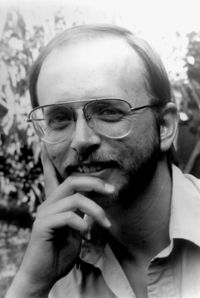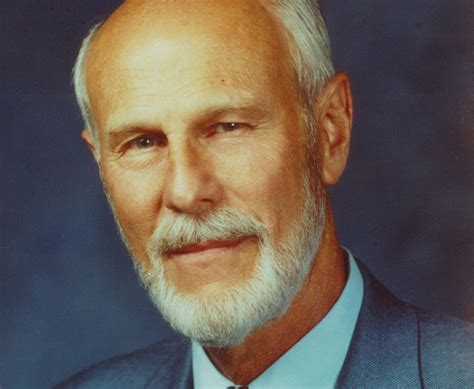A Quote by Thomas Berry
Our present urgency is to recover a sense of the primacy of the Universe as our fundamental context, and the primacy of the Earth as the matrix from which life has emerged and on which life depends. Recovering this sense is essential to establishing the framework for mutually enhancing human-Earth relations for the flourishing of life on the planet.
Related Quotes
The phrase 'Sense of the Earth' should be understood to mean the passionate concern for our common destiny which draws the thinking part of life ever further onward. The only truly natural and real human unity is the spirit of the Earth. . . .The sense of Earth is the irresistable pressure which will come at the right moment to unite them (humankind) in a common passion.The Age of Nations is past. The task before us now, if we would not perish, is to build the Earth.
Carbon dioxide is natural. It occurs in Earth. It is a part of the regular lifecycle of Earth. In fact, life on planet Earth can’t even exist without carbon dioxide. So necessary is it to human life, to animal life, to plant life, to the oceans, to the vegetation that’s on the Earth, to the, to the fowl that - that flies in the air, we need to have carbon dioxide as part of the fundamental lifecycle of Earth.
So far as we know, Earth is the only planet which supports life, and it is the only planet on which we can survive. Our bodies and our minds are fashioned by it. Our hearts resonate with it. There will be little joy for the human spirit if we destroy the natural fabric of Earth with nothing left to do but go shopping. When we imagine the world a century from now, when we look our great grandchildren in the eye and see them smiling back at us because they know we cared for them, we smile too!
The human venture depends absolutely on this quality of awe and reverence and joy in the Earth and all that lives and grows upon the Earth. As soon as we isolate ourselves from these currents of life and from the profound mood that these engender within us, then our basic life-satisfactions are diminished. None of our machine-made products, none of our computer-based achievements can evoke that total commitment to life.
What we want is another sample of life, which is not on our tree of life at all. All life that we've studied so far on Earth belongs to the same tree. We share genes with mushrooms and oak trees and fish and bacteria that live in volcanic vents and so on that it's all the same life descended from a common origin. What we want is a second tree of life. We want alien life, alien not necessarily in the sense of having come from space, but alien in the sense of belonging to a different tree altogether. That is what we're looking for, "life 2.0."
We on Earth have just awakened to the great oceans of space and time from which we have emerged. We are the legacy of 15 billion years of cosmic evolution. We have a choice: We can enhance life and come to know the universe that made us, or we can squander our 15 billion-year heritage in meaningless self-destruction. What happens in the first second of the next cosmic year depends on what we do, here and now, with our intelligence and our knowledge of the cosmos.
I've lived in a preindustrial (rural Argentina) as well as an industrial world. You experience a different sense of time in a community that works the land. Human relationships aren't professionalized or contractualized; family and friends take primacy. Life has much more continuity than discontinuity. There's a great deal of poetry in everyday life.
In magical thought the human body is the 'microcosm' (small representation) of the Earth, which is the 'macrocosm'. The Earth is also the microcosm of the Universe. In other words, we are pictures of the essence of the planet and thusly of the universe. As such, when we change ourselves, we change the Earth and the universe.
Finally, if life happened by chance on this earth and evolved upward, then it could seemingly happen elsewhere in the universe. But if, as we believe, human life resulted from a purposeful act of God, and if sin is inevitable for such beings, and if the human soul is the prize for which Satan and God do battle, then it hardly makes sense to have this same process repeated on countless other planets throughout the cosmos.
The best moments on earth are those during which we meditate upon heavenly things in general, when we recognize or defend the truth, that heavenly dweller and denizen. Only then do we truly live. Therefore, the essential interests of the soul require that we should oftener rise above the earth, upwards to heaven, where is our true life, our true country, which shall have no end.
A sense of being part of the great all-inclusive life prompts us to reflect on our own place and on how we ought to live. Guarding others' lives, the ecology and the earth is the same as protecting one's own life. By like token, wounding them is the same thing as wounding oneself. Consequently, it is the duty of each of us to participate as members of the life community in the evolution of the universe. We can do this by guarding earth's ecological system.
I believe that a desirable future depends on our deliberately choosing a life of action over a life of consumption, on our engendering a lifestyle which will enable us to be spontaneous, independent, yet related to each other, rather than maintaining a lifestyle which only allows to make and unmake, produce and consume - a style of life which is merely a way station on the road to the depletion and pollution of the environment. The future depends more upon our choice of institutions which support a life of action than on our developing new ideologies and technologies.
































